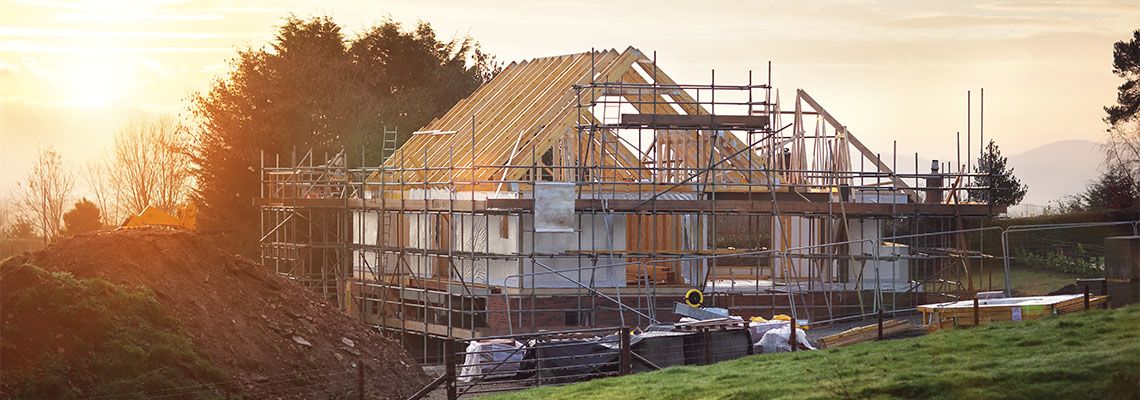
My Home Contractor Never Finished the Work
Construction projects are typically capital-intensive, requiring all parties involved to enter into contracts that help solidify the timeline and what to expect throughout the process. Unfortunately, many construction projects often experience delays due to various reasons, including budget inaccuracies, labor issues, poor weather, and low-quality project management.
According to a recent report by KPMG Global Construction Project Owner’s Survey, only 25% of construction projects are finished within 10% of their initial deadlines. If your home contractor has failed to complete your construction project, you need to speak with an experienced construction law attorney immediately for proper guidance and to protect your rights.
At Miguel A. Brizuela, P.A., we’re committed to offering comprehensive legal guidance and reliable representation to clients in their construction disputes. Our skilled legal team can investigate the reason for the construction project delays and explore your available legal options to seek relief. We’re proud to serve clients across Miami, Florida, and surrounding areas throughout Southern Florida, including West Palm Beach and Fort Lauderdale.
Common Reasons for Unfinished Work
Unfinished construction work involves a situation whereby the contractor abandoned, delayed, or failed to complete a building project. The following covers some common reasons for incomplete construction work:
Contractor Issues:
inadequate project management
financial issues
poorly defined scope of work
lack of labor
budget Inaccuracies
poor productivity or poor supervision
poor logistics
subcontractor schedules and compliance issues
poor quality work
material wastage
ignoring red flags
Homeowner-Related Issues:
project complexity and uniqueness
failure to make payments
change requests
scope creep
failure to provide necessary approvals
lack of good communication
Other Issues:
problems getting building materials
theft on the construction site
poor weather
third-party dependencies
a lengthy process of getting necessary approvals
natural disasters and other external factors
Unfortunately, failure to complete a home construction on time may result in additional costs and possible losses for the owner. An experienced construction attorney can enlighten you about your various legal options and help you make informed decisions.
Your Legal Options as a Homeowner
If you’re involved in a construction dispute with a home contractor due to an incomplete construction or renovation project, you may be entitled to take necessary legal action. The following covers some possible legal options for incomplete home projects.
Contact the Contractor
Get in touch with the home contractor to understand the reasons for the project delays or abandonment. This allows you to meet and discuss the issues and identify the best way forward.
Consider Hiring a New One
Alternatively, you may consider hiring a more reliable home contractor to handle the construction project. However, this is only advisable if all that you paid for has been delivered.
File a Complaint
In addition, you can file a complaint against the home contractor in civil court. You can also complain about the irresponsible behavior of the contractor on online review sites, the Better Business Bureau, and licensing board or commission of contractors in your state.
Small Claims Court
However, if you made advance payments for more than what the home contractor has delivered, you may file a lawsuit against them in small claims court. In Florida, you can file a small claim to settle a civil dispute involving $8,000 or less.
Alternative Dispute Resolution
Furthermore, you may pursue other alternative dispute resolution options to resolve the construction dispute. These include settlement meetings, mediation, negotiations, and arbitration.
However, it’s important that you understand your contractual obligations before you take any further action against the home contractor. Your attorney can enlighten you about the benefits and drawbacks of each legal option, outline an effective strategy to protect your rights, and help you decide the best course of action.
How to Protect Your Rights during the Process
When involved in a construction dispute due to unfinished construction or renovation project, here are some insightful tips to protect your rights:
Talk to your home contractor using all forms of communication.
Document everything during the process. You can take pictures of the unfinished project, print out text messages and email correspondence, and print call logs.
Review the terms of the original contract agreement.
Make an ultimate decision, such as terminating the contract mutually.
Seek the assistance of an experienced attorney.
A trusted attorney can advise you about the various legal steps to take and help protect your best interests.
Need Professional Help? Contact Our Law Firm Today.
Working with an irresponsible or unreliable home contractor can be extremely frustrating. Regardless, it is important that you take the necessary legal steps to protect your rights and investment.
At Miguel A. Brizuela, P.A., we have the knowledge to help you hold the home contractor liable for their unfinished work. As your legal counsel, we can evaluate the surrounding circumstance of your unique situation, identify who and what is responsible for the construction delays, and explore your available options. We’ll also collaborate with all parties involved to settle the construction dispute and find the right solution to complete your construction work.
Contact us at Miguel A. Brizuela, P.A. today to schedule a one-on-one consultation with dependable construction law attorneys. We proudly serve clients across Miami, Florida, and surrounding areas throughout Southern Florida, including West Palm Beach and Fort Lauderdale.
